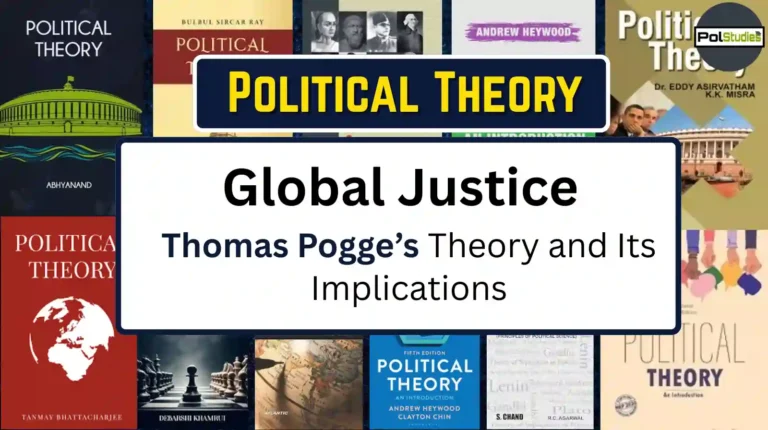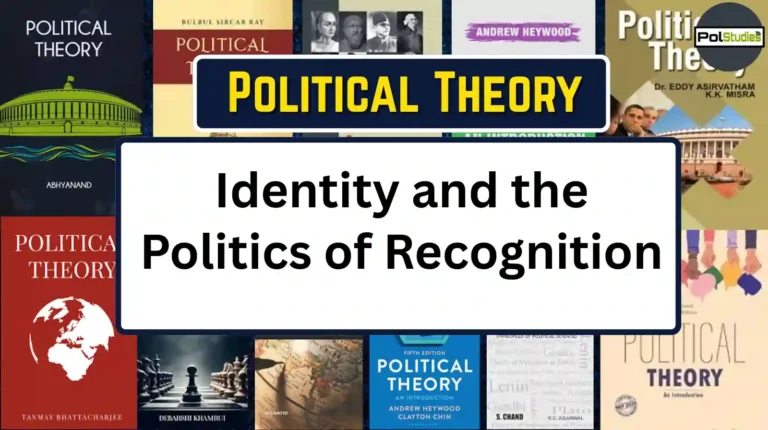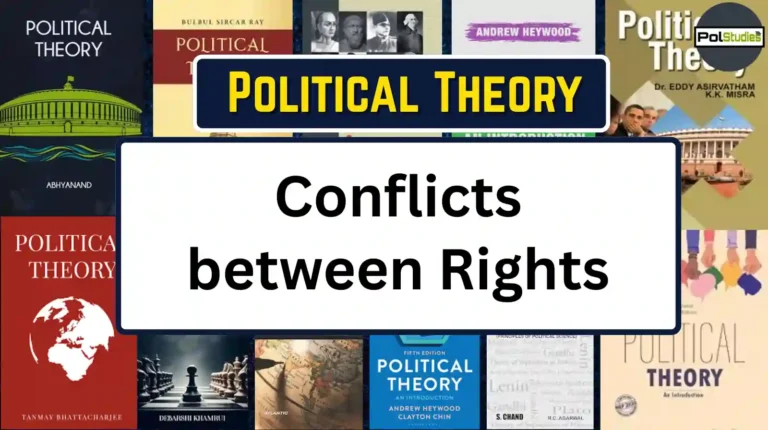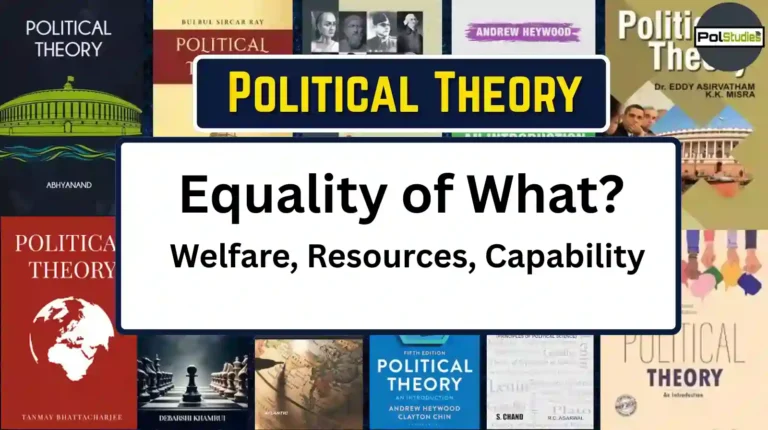What is Political Theory | Normative and Descriptive View
Introduction
Political and theory are two different aspects, it is necessary to understand it and its meaning only then we will be able to jointly understand the meaning of both of them that what is political theory.
Politics- Politics is comprehensive in itself, that is, it includes all those matters which are related to people’s life and public life.
Theory– While the theory is a set of ideas through which we systematically investigate various issues,
that is, political theory is a branch of political science that presents the description of the reality of social, political, and economic affairs and their intellectual activities. Also known as political theory, which tries to present reality.
We get a clear description of political theory and its brief definition from Katrina Mechanic’s article “Issues in political theory“.
Katrina Mackinnon in her article defines political theory as “political theory is the study of how we should live in a society”. Different aspects of social cooperation are involved in the same way, there is variation and prevalence in the nature and shape of political theory.
Dimensions of Political Theory
According to McKinnon political theory can be divided mainly into three dimensions –
1. Interpersonal relations– This is the first dimension of political theory, under which it is studied how we should share the benefits of functional activities and what kind of boundaries should be arranged, how we should treat each other as well as how we should deal with our society. How should I organize myself in a small group, etc? Under this dimension, an in-depth study is done on all the above points.
2. State personal relation- In this second dimension of political theory, the deep relationship between the individual and the state is mainly studied, under this, attention is studied as to why the individual should accept the political sovereignty of the state and What are the boundaries of the state?
In a democracy, most of people accept the principle of heredity but still, I believe that is why people give importance to democracy thus here various questions which are planned on the basis of social principles cooperation, and justice support this principle in different ways done in the state by
3. Global relation- This is the last dimension of political theory, it includes such issues and questions, which are related to the world level, the way a person lives in the state, and the boundaries that he has, that person is also beyond them. And it can be related to other states also.
Thus a political theory is not limited to a state or is far more than that. Therefore, a political theory also includes some topics that involve all the above three dimensions, such as “How should we protect the environment?”
Normative and Descriptive View of Political Theory
Katrina McKinnon, the study of these questions can be divided into two parts which have been determined by the in-depth study of society-
- Normative
- Descriptive
Under normative perception, it is thought that how an individual, society, and world should be, whereas, under descriptive perception, a depiction is presented here of how the individual, society, or world actually is.
Thus it can be seen that its normative concept under political theory mainly talks about the change in society and the world and the individual (how it should be).
On the contrary, the descriptive concept of political theory talks about the reality of the individual, society, and the world (how it is).
Political Theory Normative or Descriptive
Due to the prevalence of political theory, there has been confusion or controversy among scholars about whether a political theory is normative or descriptive, that is, in relation to political theory, it is believed that it carries both concepts with it. The scholars have given the following arguments for this.
- Normative side- Supporters of a normative conception of the political theory say that political theory is a normative theory because in this political theorists tell us how people should get along with each other and obey the laws that have been enforced, that’s why various theorists Consider it the normative notion of political theory.
- Descriptive side- Most political theorists operate from a background of certain assumptions and the key assumptions are not presented here that only descriptive concepts are important in political theory or normative assumptions are important, nor does any theorist speak for the belief that “the world should be like this”. “Most political theorists describe such a state as best we can imagine so that we can know about the world and also about its elements.
Thus, the normative political whole, that is, theory should be complete, comprehensive, and insightful. It is basically prescriptive because it sets some standards of evaluation through which we can examine the shortcomings of a system. and can improve them or suggest remedies.
While the purpose of descriptive theory is not to evaluate, according to them the study of political theory should be value-free and its relationship should be based on facts.
Mechanic argues that political theorists should not study and explain theories for the purpose of joking because the basic purpose of this theory is to fulfill “how to live together”. Can’t imagine.
In short, Political theory is an ongoing dialogue in which theories aim to expand our understanding of social reality.






